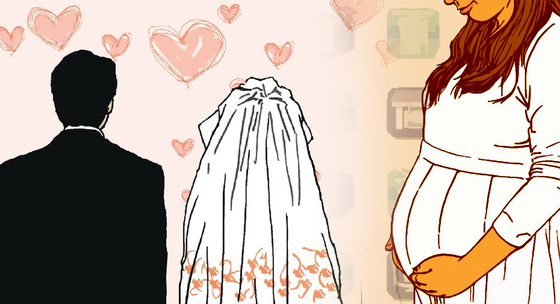![Marriage and childbirth. [중앙포토]](https://i0.wp.com/pds.joins.com/news/component/htmlphoto_mmdata/202103/27/39fac07f-3af8-4340-8892-d3766fa0d9ab.jpg?w=560&ssl=1)
Marriage and childbirth. [중앙포토]
It was found that Ulsan’s fertility rate was the highest among seven special metropolitan cities.
According to the city of Ulsan on the 26th, as a result of analyzing birth statistics in 2020, the total fertility rate of Ulsan was 0.99, ranking first among seven special cities nationwide. The total fertility rate is the average number of births a woman is expected to give birth during the fertile period (15 to 49 years old), and the national average fertility rate is 0.84.
Last year, the number of births in Ulsan was 6600, down 900 (12.1%) from 7500 last year. However, it seems that it ranked first as the birth rate declined nationwide.
In particular, the birth rate per 1,000 people in Ulsan was 5.8, ranking first among special and metropolitan cities. The national average is 5.3. In 17 cities and provinces nationwide, Sejong ranked first with a total fertility rate of 1.28 and a birth rate of 10.0 per 1,000. Ulsan ranked 7th in the total fertility rate among 17 cities and provinces and 4th in the birth rate per 1,000 people.
The average age of mothers giving birth to their first and second children in Ulsan was 31.7 and 33.49, respectively, 0.14 and 0.15 years older than the previous year. However, the ages of mothers with third and fourth children were 35.39 and 36.20, respectively, lower by 0.05 and 0.49 years from the previous year.
The fertility rate by age group (number of births per 1,000 female population of that age) was the highest in their early 30s with 107, followed by 48.6 in their late 20s and 43.6 in their late 30s. There were 6.4 people in their 40s.
The city of Ulsan analyzed that it seems to be seeing the effect of concentrating administrative power on the’Ulsan-type birth promotion project’ to increase the fertility rate every year. Ulsan City believes that housing instability is the cause of the drop in fertility rates, and is in the process of supporting housing expenses for newlyweds’ households. For newlyweds moving into public rental housing, up to 350,000 won, including rent and management fees, is provided.
In addition, to reduce the burden of child-rearing, 50% of the difference in childcare fees for children aged 3-5 years old attending private and family daycare centers is provided for the first child and the second child or older in full.
There are also 15 national and public daycare centers (currently 72), and 5 child care centers (currently 6) are newly installed to allow all grades of elementary school who need care regardless of their income level to use them.
Ulsan = Reporter Baek Gyeongseo [email protected]
![]()
